Keycloak SAML
Use Keycloak as SAML identity provider for Kimai
You are viewing an older version of this documentation page. A newer version is available here.
Go back to general SAML configuration for Kimai.
SAML authentication with Keycloak accounts has proven to work with the following configurations.
Add a client for Kimai SAML

Configure the client
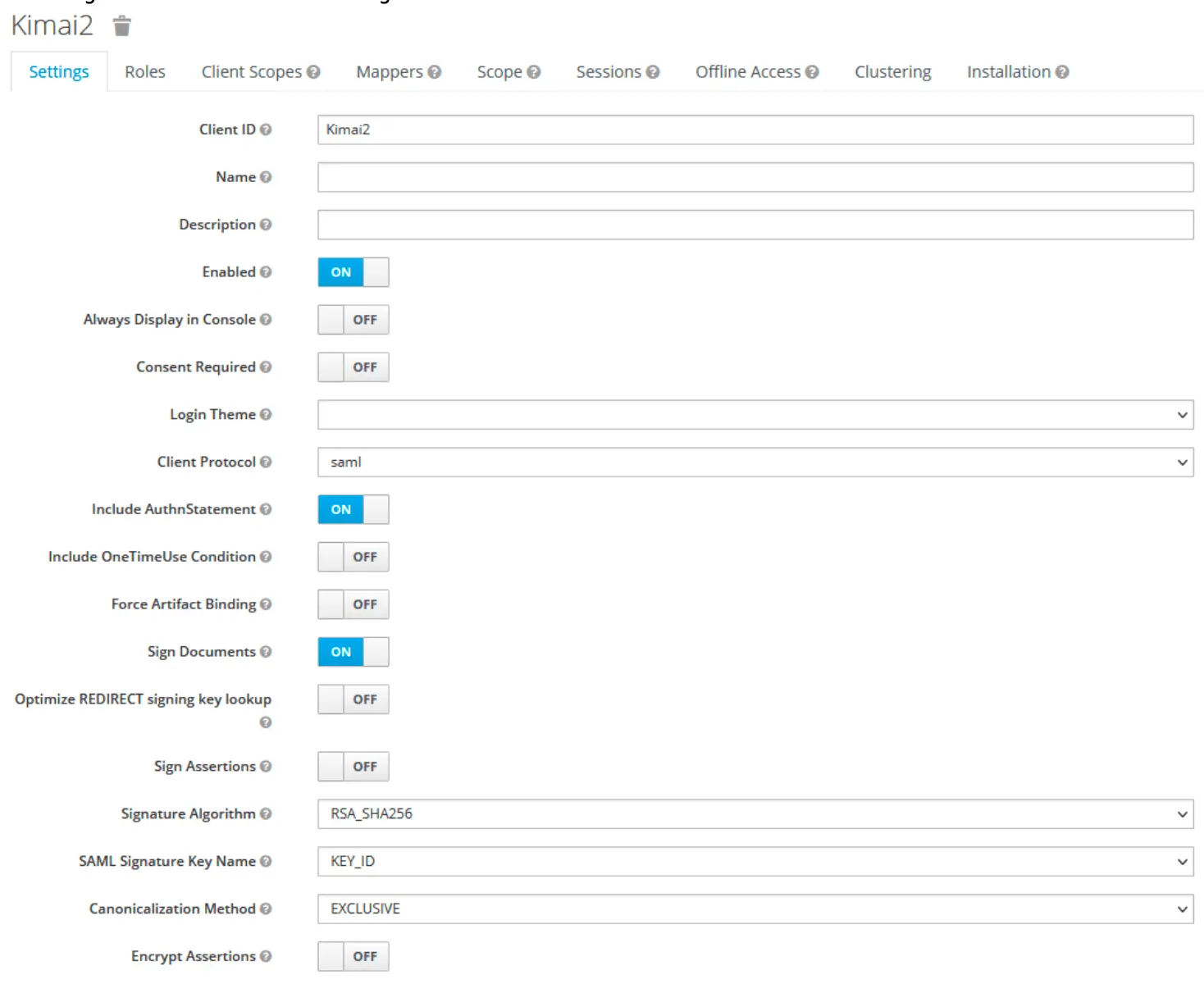
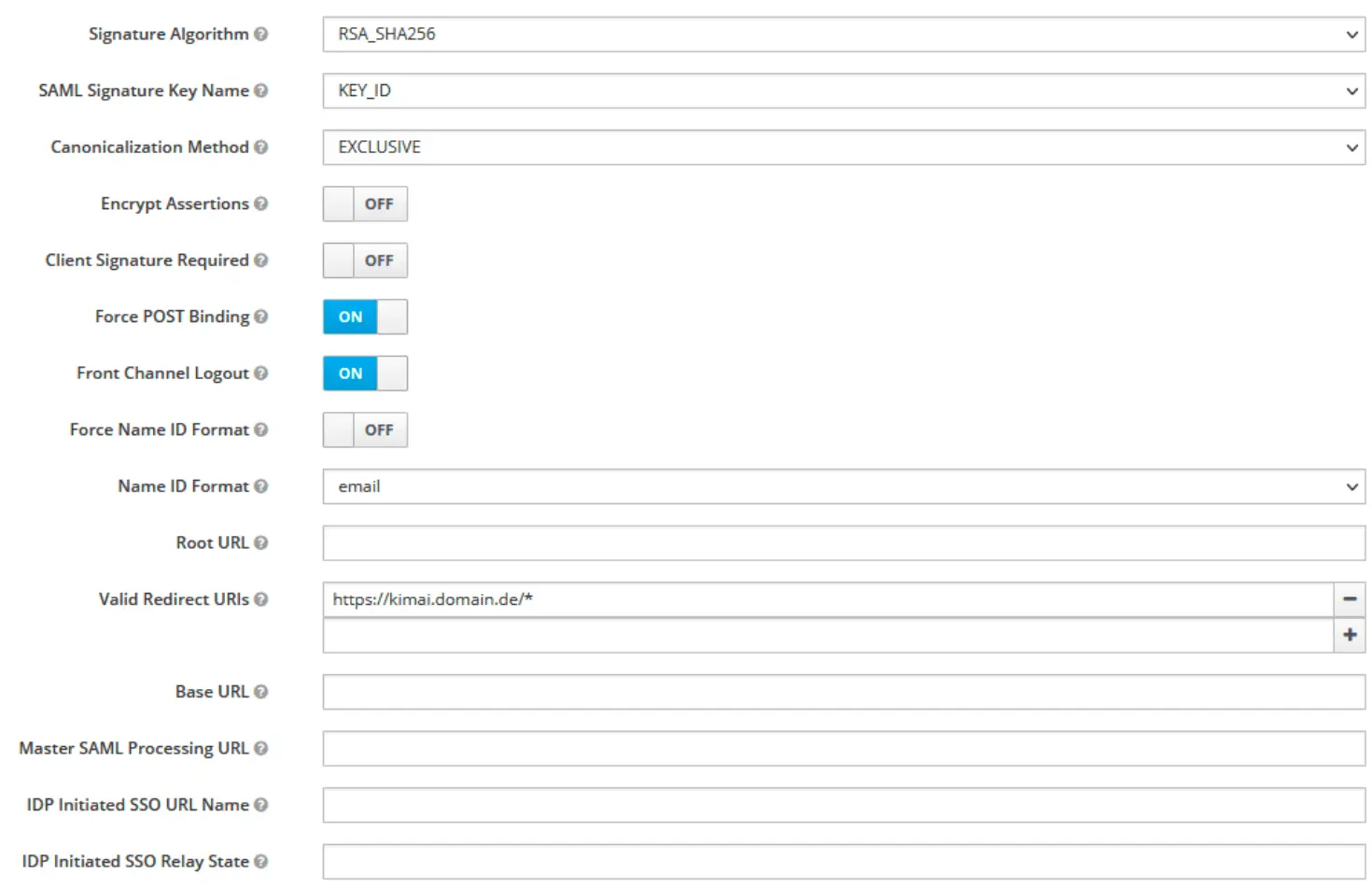
Create user attributes
Which will then be mapped on the Kimai user attributes:

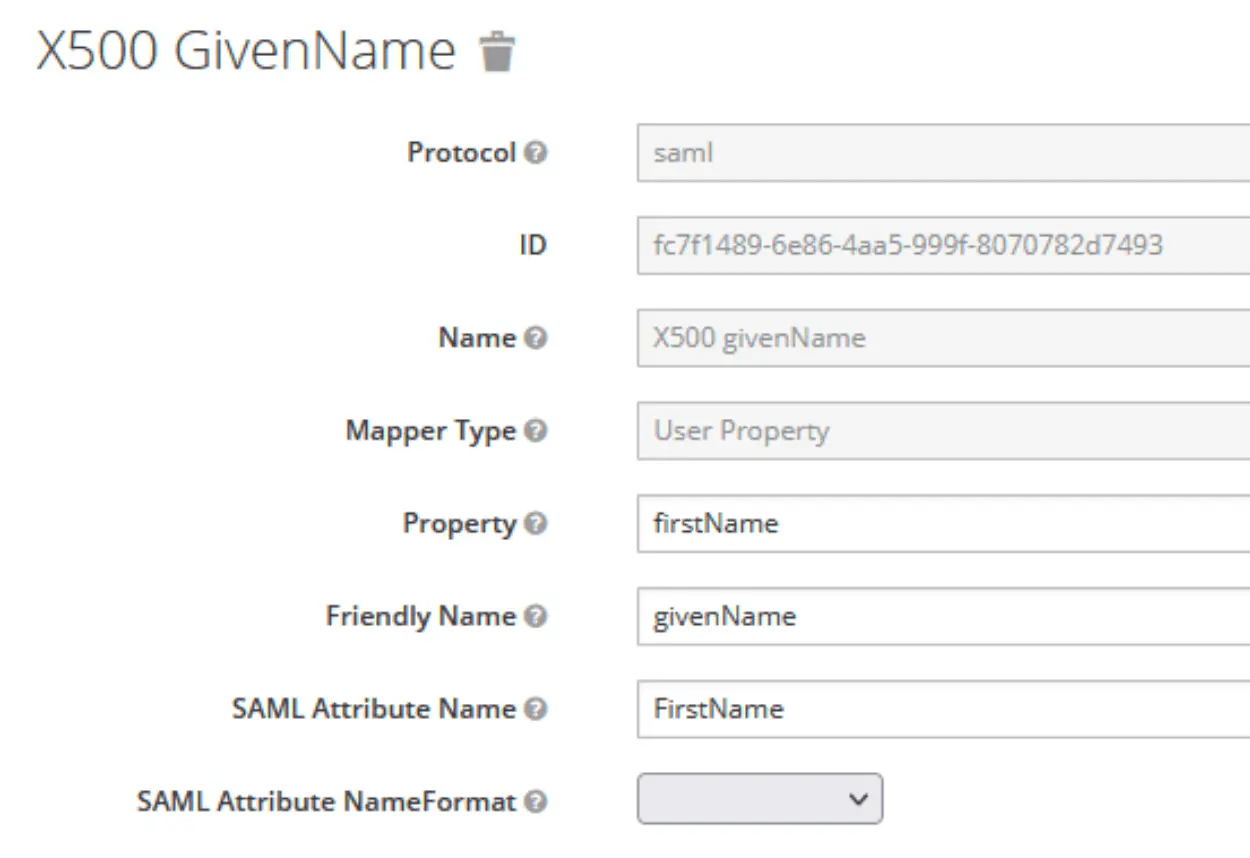
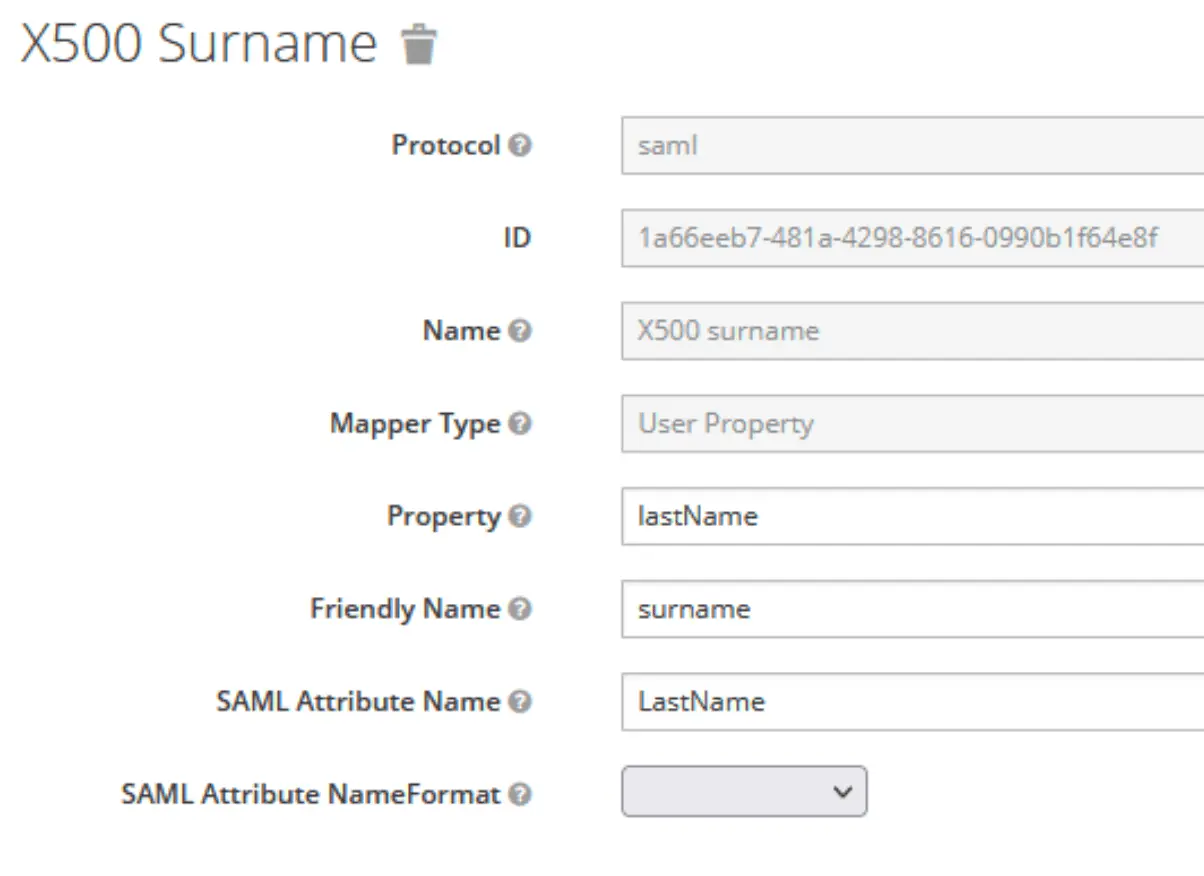
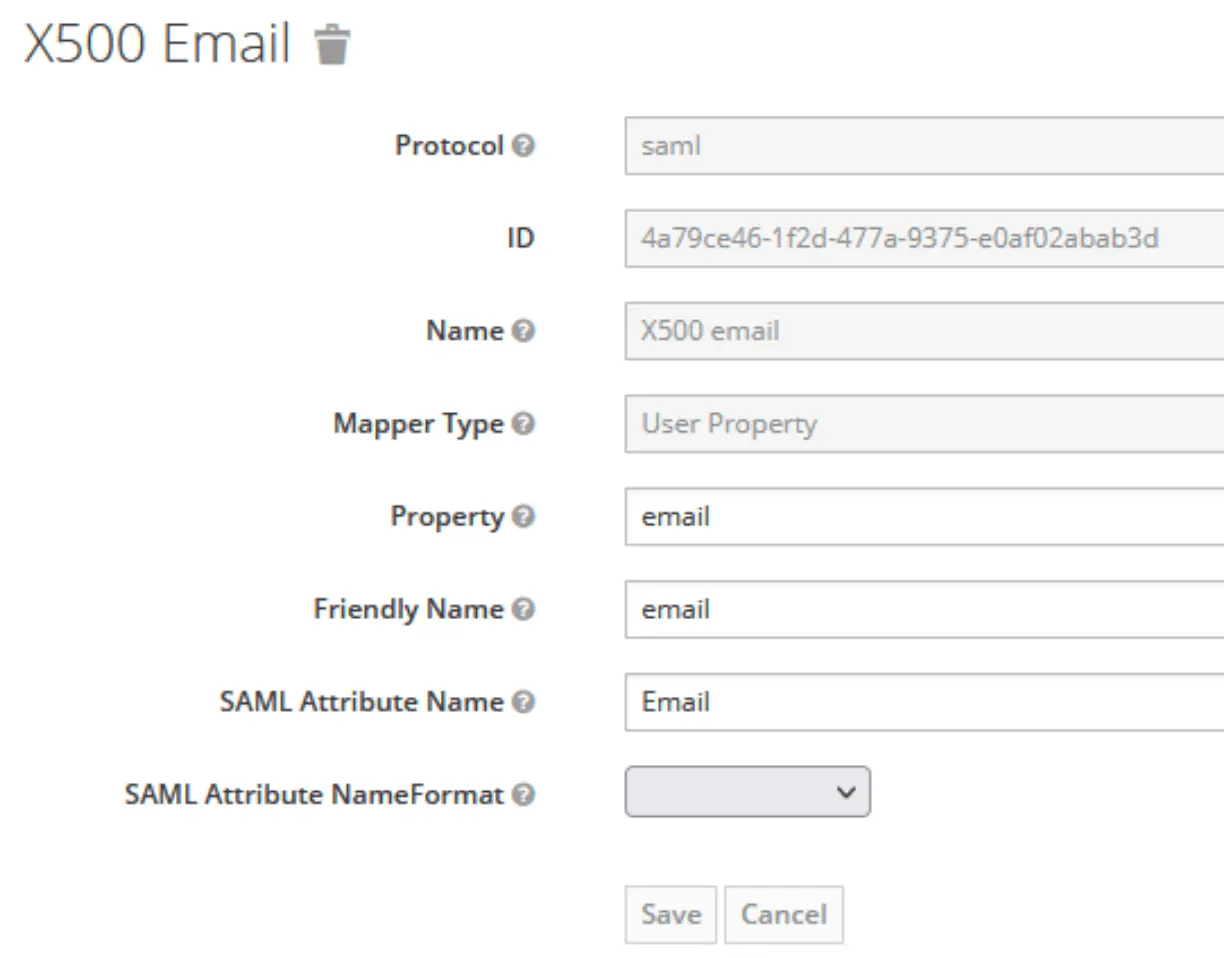
Adjust Client Scopes
- Go to Configuration -> Client Scopes -> role_list
- Select Tab “Mappers”, edit “role_list”
- Set” Single Role Attribute” to “ON”
Configure local.yaml
And here is the matching Kimai configuration:
kimai:
saml:
activate: true
title: Keycloak
mapping:
- { saml: $Email, kimai: email }
- { saml: $FirstName $LastName, kimai: alias }
roles:
resetOnLogin: true
attribute: Roles
mapping:
- { saml: Admins, kimai: ROLE_ADMIN }
- { saml: Management, kimai: ROLE_TEAMLEAD }
connection:
# You SAML provider, here an example for Keycloak
idp:
entityId: 'https://keycloak.domain.de/auth/realms/Firmenrealm'
singleSignOnService:
url: 'https://keycloak.domain.de/auth/realms/Firmenrealm/protocol/saml'
binding: 'urn:oasis:names:tc:SAML:2.0:bindings:HTTP-Redirect'
# url: 'https://127.0.0.1:8010/logout' binding: 'urn:oasis:names:tc:SAML:2.0:bindings:HTTP-Redirect'
x509cert: 'Get your Keycloak certificate at Realm Settings --> Keys --> RS256 --> Certificate '
# Your Kimai instance, replace https://127.0.0.1:8010 with your base URL
sp:
entityId: 'Kimai2'
assertionConsumerService:
url: 'https://kimai.domain.de/auth/saml/acs'
binding: 'urn:oasis:names:tc:SAML:2.0:bindings:HTTP-POST'
singleLogoutService:
url: 'https://kimai.domain.de/auth/saml/logout'
binding: 'urn:oasis:names:tc:SAML:2.0:bindings:HTTP-Redirect'
#privateKey: ''
# only set baseurl, if auto-detection doesn't work
#baseurl: 'https://kimai.domain.de/auth/saml/'
strict: true
debug: true
security:
nameIdEncrypted: false
authnRequestsSigned: false
logoutRequestSigned: false
logoutResponseSigned: false
wantMessagesSigned: false
wantAssertionsSigned: false
wantNameIdEncrypted: false
requestedAuthnContext: true
signMetadata: false
wantXMLValidation: true
signatureAlgorithm: 'http://www.w3.org/2001/04/xmldsig-more#rsa-sha256'
digestAlgorithm: 'http://www.w3.org/2001/04/xmlenc#sha256'
contactPerson:
technical:
givenName: 'Kimai Admin'
emailAddress: 'kimai-tech@example.com'
support:
givenName: 'Kimai Support'
emailAddress: 'kimai-support@example.com'
organization:
en:
name: 'Kimai'
displayname: 'Kimai'
url: 'https://www.kimai.org'
You should now be able to test the Login by visiting https://timetracking.example.com/ and clicking on the Keycloak title of the SAML method, you defined earlier.